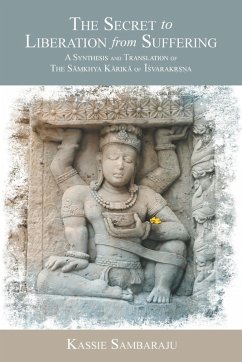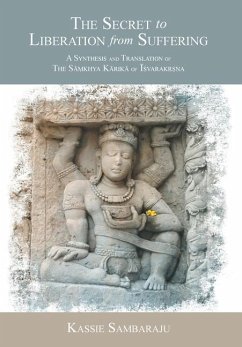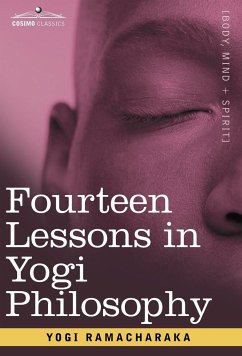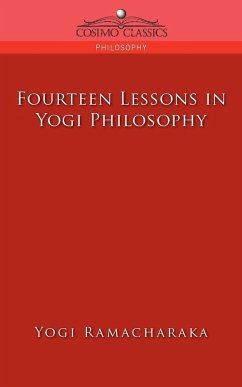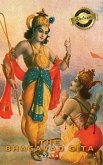This new translation, with extensive commentary of the S¿¿khya K¿rik¿ ("Verses on S¿¿khya") is one of the foundational text of the six ¿stika schools of Hindu philosophy. It is intended to provide readers with a literal, unadorned English-language version of S¿¿khya philosophy of Sage Kapila. The book has an introductory essay on the key ideas and aims of S¿¿khya with explanatory notes on each verse. Not only designed for general audience, it can also be used as a study manual by Yoga instructors. Both the translation and the analysis aim to convey the true substance and depth of the S¿¿khya philosophy from a practical, actionable point of view using the vernacular of common experience. The supreme object of desire of every human being is the cessation of dükha, pain and suffering. S¿¿khya is that secret to liberate an individual from suffering. In S¿¿khya, pleasure, delight, joy, enjoyment, and bliss reside in the absence of pain as Sattva quality of lightness. Dükha is a duality in S¿¿khya, and it nests in the qualities of Tamas as inertia and heaviness. Through Rajas of taking action, an individual can transform from the state of suffering to the state of lithe. S¿¿khya inspired Patañjali's Yoga system. Both these systems are adhy¿tma-vidy¿, to acquire knowledge and learn about the internal Self and its manifestations. S¿¿khya is a sam¿k¿ä, a complete investigation to maturely deliberate and reflect in order to acquire knowledge about the Self. By discerning the causes and effects of suffering, insights are gleaned. An individual feels lighter by taking recourse. This is Kaivalyam, a perfectly isolated state of Mind. Empowered with such knowledge, Buddhi, the Intellect, is transformed and with that enlightenment, the individual feels liberated. The essential simplicity of this profound yet simple philosophy of liberation and universal love was committed into a written format in the third to fourth century CE by ¿¿vara K¿¿¿a. The "Verses on S¿¿khya" formalize and codify centuries of earlier philosophical thinking on liberation from suffering and the means to achieve it in a plain-spoken manner. In other translations and commentaries, its insights have often been shrouded in inaccessible language and words. The meticulous attention to the literal trail-of-meaning Säsk¿t words maintains the integrity of this ancient text to generate an unembellished interpretation of the verses to convey the essence of S¿¿khya in its true "ungarnished" beauty.
Bitte wählen Sie Ihr Anliegen aus.
Rechnungen
Retourenschein anfordern
Bestellstatus
Storno

